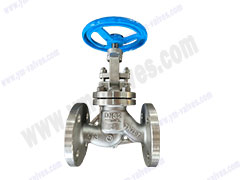-
Introduction to the Selection and Application of Gate Valves for Water Applications
Gate valves are commonly used in water applications due to their robust construction and capability of controlling high pressure and flow conditions. This article provides an overview of the selection criteria and application conditions for gate valves in water applications.
Selection Criteria:
1. Fluid Characteristics: The fluid characteristics including temperature, corrosiveness, viscosity, and suspended solids or debris determine the material and size of the gate valves.
2. Flow Rate: The flow rate and the valve size are interrelated, which is dependent on the flow coefficient. The higher the flow coefficient, the smaller the valve size required.
3. Pressure: The pressure rating of the gate valve should be greater than or equal to the system's maximum operating pressure to avoid any potential system damage. Gate valves are commonly used in high-pressure applications, which require a valve that can withstand the excessive pressure and flow rate conditions.
4. Operating Temperature: The gate valve's operating temperature is another critical parameter that must be considered when selecting the valve. Gate valves are commonly selected for applications that require a valve that can withstand high-temperature conditions.
Application Conditions:
1. Isolation: Gate valves are primarily used for isolating different sections of the water system or subsystems. The valve's construction should be robust enough to withstand the excessive pressure and flow rate conditions.
2. Flow Control: Gate valves are also used for flow control applications. The valve's actuator type and control signal must be chosen based on the control requirements.
3. Water Treatment: Gate valves are commonly used in water treatment systems, where they control the flow of water and chemicals such as chlorine, fluoride, and ammonia. The gate valve's materials and sealing design must avoid any potential contamination caused by the water treatment chemicals.
4. Irrigation: Gate valves are also used in irrigation systems. The valve's material and construction should be chosen based on the properties of the irrigation water.
Conclusion:
Gate valves are widely used for water applications due to their robust construction and high-pressure and flow rate control capability. Selecting the appropriate gate valve depends on the fluid characteristics, flow rate, pressure, and operating temperature. Their application conditions include isolating sections of the water system, flow control, water treatment, and irrigation systems. By selecting the right gate valve, water systems can operate efficiently and effectively with a reliable valve that can withstand the excessive pressure and flow rate conditions.




.jpg)
.jpg)
.jpg)